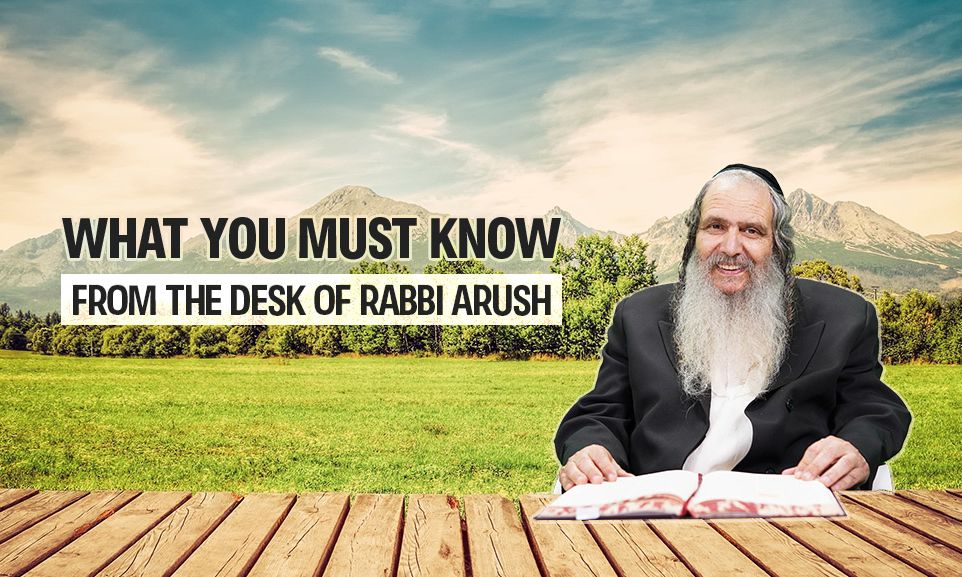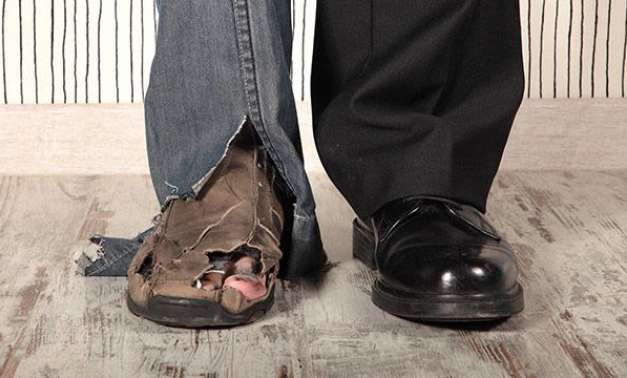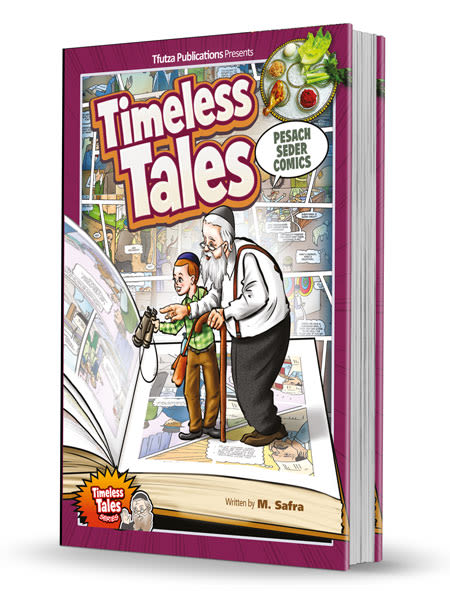
What You Must Know
Every person feels to some degree that he has reached a state that is beyond forgiveness. Read Rabbi Arush’s encouraging message that Hashem wants His children to know how much He loves them and how much He is ALWAYS willing to forgive them.

Translated from Rabbi Arush’s feature article in the weekly Chut shel Chessed newsletter. The articles focus on his main message: “Loving others as yourself” and emuna.
Inconsolable
Amit loved Ro’i, and that is why he was so hurt by him. For years he had always been at Ro’i’s side and helped him devotedly and unselfishly, and he couldn’t believe that Ro’i was capable of doing such a thing to him.
Amit expected Ro’i to at least apologize, and in spite of the extent of the blow, Amit still loved Ro’i and was willing to forgive him; he was just waiting for Ro’i’s apology. But it seemed Ro’i wasn’t willing even to make that small effort for the person who had always done good things to him no matter how much effort was involved.
Ro’i’s seeming lack of caring pained Amit more than the original blow!
Amit’s close friends knew that he was suffering but couldn’t manage to console him. That is, until Amit met Shlomo. Shlomo was a very wise and sensitive person, with a lot of life experience. His life had not been easy, and he had learned a lot about himself and about life. He understood people.
Mind Reader
After Shlomo listened to Amit, his kind face revealing to him that he feels his pain and identifies with every word, he said to him: “Dear Amit, I know people and I know exactly how you feel. You feel betrayed. You feel that someone has taken advantage of you. You want some reasonable explanation…”
Shlomo went on to describe what was going on in Amit’s heart, and Amit was amazed at how well Shlomo described exactly what he was feeling – better than he could himself. At last, he had found someone who truly understood him and could read his feelings. Amit knew that Shlomo would also be able to do something to calm his soul. Shlomo continued:
“Amit, you should know that the same way I understand you and know how to describe your feelings, I can also give you an exact description of how Ro’i feels, even if I don’t understand what happened and why he did what he did.
“Know, that there is nothing more complex and tangled than a person’s soul. I believe with all my heart – without any doubt at all – that Ro’i is very sorry. He understands that he has hurt you, and precisely because you were so good to him, and precisely because of the severity and extent of the blow he dealt you – precisely because of that he feels so uncomfortable. He isn’t asking for forgiveness because he thinks there’s no chance in the world that you will forgive him. He just doesn’t know how to get out of this predicament…”
At that moment, Amit’s way of thinking changed; something in his feelings shifted. The level of pain and frustration dropped significantly. He still felt hurt and waited for an apology, but he was no longer suffering because of Ro’i’s failure to apologize. All he wanted was that Ro’i should know that he, Amit, was willing to forgive him. Amit did whatever he did, and the message reached Ro’i. The longed-for appeasement finally happened, and the pain of two broken and suffering hearts was assuaged.
The Creator’s Desire
Know, dear Jews, that the hearts of the Jewish people long for Hashem. Everyone wants to have a taste of teshuvah (repentance); but the greatest block preventing teshuvah and closeness to Hashem is really the dangerous and false thought: “I am so bad; I have sinned so much that there is no chance the Creator of the World will accept my teshuvah. I can understand that a person who has sinned here and there will be accepted by Hashem, but I have crossed all the red lines. There is no hope for me!”
And these thoughts are dangerous mainly for those who grew up in religious homes but left that way of life. They are dangerous as well as for baalei teshuvah who go through many ups and downs, and for Jews who were deep in crime or who caused many others to sin. But, in addition, every person feels this way, to some degree or other – that he has reached a state that is beyond forgiveness…
And do you know what the Creator wants more than all?
The Creator of the World wants His children to be told how much He loves them and how much He is – always – willing to forgive them.
The Creator of the World is so merciful that He has no red lines. There is no failing and no transgression that can cause Hashem yitbarach to not be willing to accept a person’s teshuvah. But people don’t do teshuvah because they think mistakenly that they are lost causes. And therefore, Hashem wishes that His children be told the truth, what He really thinks and feels:
“Dear Jews, chas veshalom that you should think that about Me,” says the Creator. “I am always waiting for you. Each and every one of you, man or woman, at any time and in any situation. It doesn’t matter how far you’ve fallen. It doesn’t matter what you’ve done. I am always here. Do not give up on yourself. Do not give up because of your “mountains” of sins. Just want. Just make a small effort on your part, and I will send you all the help and siyata diShmaya (help from Heaven) to return to Me completely.”
Never Give Up on Any Jew
Let us see the wonderfully sweet words written by Rabbi Natan about a passuk in our parasha: “If you see the donkey of someone who hates you fallen under its load, resist the impulse to leave it there. Azov ta’azov – Help with him to release it.”
Who is that hating person? Is it permitted to hate a Jew? Chazal explain that the passuk is referring to someone who sins habitually.
And what happened to him? He has fallen under his load. He cannot lift himself up, due to the heavy load of transgressions that is upon him. And Hashem, in His mercy, commands every Jew to help him, despite his being so bad. Rabbi Natan writes that you might think not to try to help him, because it will seem to you that it is very difficult to raise a person from such a situation. “But Hashem yitbarach is very merciful, so He warned: Help him to release the burden; even such a person must be helped, and one should try with all his strength to elevate him.”
The Torah says: Azov ta’azov – and Chazal say, “Azov – leave what is in your heart.” In other words, put aside your opinions and don’t involve your mind and your understanding; rather, believe in Hashem’s mercy for every Jew.
This task falls on every Jew: Not to give up on any other Jew, and to try to get him to do teshuvah. And it is particularly relevant to the tzaddikim, who have the power to raise up a Jew from any place he might be. The greater the tzaddik, the more he believes in a person and empowers him. Because the difference in level between tzaddikim is their degree of belief in Hashem’s mercy. A greater tzaddik is more capable of grasping Hashem’s immense mercy, and that was Moshe Rabbeinu’s power, enabling him to take the Jewish People out of Egypt and to pray for them after every sin that they committed.
Never Give Up on Yourself
But the main point for every Jew is not to give up on himself! Not to fall into the false thought that the Creator of the World doesn’t want to accept him and doesn’t want to forgive him! By not falling into this trap, a person will always believe that Hashem loves him, and he will do his best to do what he can still do.
For the Torah gives only one condition: “Azov ta’azov immo” – help with him. There must be cooperation on the part of the person being helped. If the owner of the donkey just sits on the side – there is no mitzvah to help him. So too when it comes to teshuva: The sinner must participate in the effort. What is he supposed to do? He can’t pick up the load by himself, so what should he do?
And here Rabbi Natan says something new – amazingly new: The sinner must want! He must have “some real desire to engage in the rectification of his soul”, in other words, if he does some amount of self-awakening – the tzaddik will be able to help him and lift him up and elevate him from every downfall.
Therefore, dear Jews, do not give up. Know that the Creator always loves you, always waits for you, always ready to forgive you, always willing to save you from the bad within you. And you can always try to do whatever is in your power: to ask for forgiveness, to start anew, to want, and to attach yourself to tzaddikim. Chizku ve’imtzu! Be strong and of good courage!












Tell us what you think!
Thank you for your comment!
It will be published after approval by the Editor.